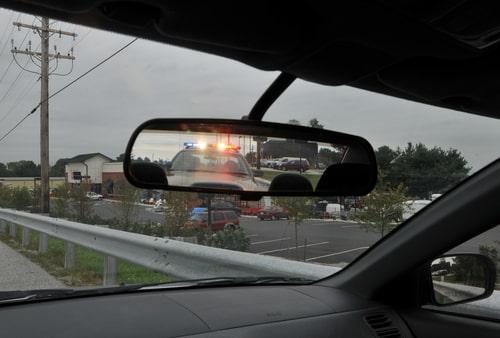Follow Us |Facebook
Call or Text for a Consultation
10 Reasons BAC Evidence May Be Inaccurate and Unreliable in a DUI Case
 In Illinois, the legal limit for blood alcohol content (BAC) is 0.08 percent. Police officers use many different means of determining a suspect’s level of intoxication. Field sobriety tests do not measure the exact level of intoxication, but they can be used to detect signs of intoxication like lack of coordination and balance. Chemical blood alcohol tests including breath tests and blood tests can be used to determine a person’s actual blood alcohol content after a drunk driving arrest. However, these tests are not always accurate or reliable. In some cases, evidence in a DUI case is inadmissible and must be thrown out.
In Illinois, the legal limit for blood alcohol content (BAC) is 0.08 percent. Police officers use many different means of determining a suspect’s level of intoxication. Field sobriety tests do not measure the exact level of intoxication, but they can be used to detect signs of intoxication like lack of coordination and balance. Chemical blood alcohol tests including breath tests and blood tests can be used to determine a person’s actual blood alcohol content after a drunk driving arrest. However, these tests are not always accurate or reliable. In some cases, evidence in a DUI case is inadmissible and must be thrown out.
Problems with DUI Evidence Can Make Them Unusable
Driving under the influence of alcohol is punishable by license revocation, steep fines, and even jail time in certain circumstances. However, the prosecution must have sufficient evidence to secure a conviction for DUI. Many different issues can make DUI evidence unreliable, including:
-
Improper storage of blood tests – Blood testing is considered one of the most accurate ways to determine BAC. However, improper storage of a blood sample allows the sample to decompose, increasing the alcohol content in the sample.
-
Improper blood test administration – Blood alcohol tests cannot be conducted by just anyone. If the person who took the blood sample from a DUI suspect was not properly trained and certified, the test may be invalid.
-
Breathalyzer not calibrated – Breath alcohol tests must be properly calibrated to yield accurate results. If the device has not been regularly calibrated, a DUI defense lawyer may be able to successfully argue that the results are unreliable.
-
Breathalyzer test not maintained – Breath tests must be regularly cleaned and maintained to work properly. Failure to maintain breath test devices and replace malfunctioning devices can lead to inaccurate results.
-
False positive caused by diet – Some diets, such as the “keto diet” make the body produce ketones which can lead to false positives on breathalyzer tests.
-
Rising blood alcohol – Blood alcohol rises over time. If there is significant time between a DUI arrest and a breath or blood test, it is possible that the driver’s BAC was under the legal limit at the time he or she was driving.
-
Medical problems – Field sobriety tests are designed for individuals without medical issues or injuries. People with medical conditions that cause balance issues or difficulty completing physical tasks can fail a field sobriety test completely sober.
-
Obesity – Did you know that field sobriety tests are not intended for people more than 50 lbs overweight? Obesity can make it difficult to perform the one-leg-stand test and the walk-and-turn tests.
-
Lack of probable cause for traffic stop – Police cannot pull someone over for no reason. They must have probable cause to conduct a traffic stop. If a driver is pulled over without justification, any evidence collected during the traffic stop (such as the results of a breath test) may be inadmissible.
-
Lack of probable cause for DUI arrest – Police must also have probable cause to arrest someone for drunk driving. If the police made an arrest without probable cause, the driver may be able to avoid conviction for DUI.
Contact an Orland Park, Illinois DUI Defense Lawyer
If you or a loved one were charged with drunk driving, contact skilled Orland Park DUI defense attorney Khaled Issa for help. Call Issa Law, LLC at 708-966-2408 today for your free consultation.
Sources:
https://www.ilga.gov/legislation/ilcs/fulltext.asp?DocName=062500050K11-501
https://www.nature.com/articles/0803444




